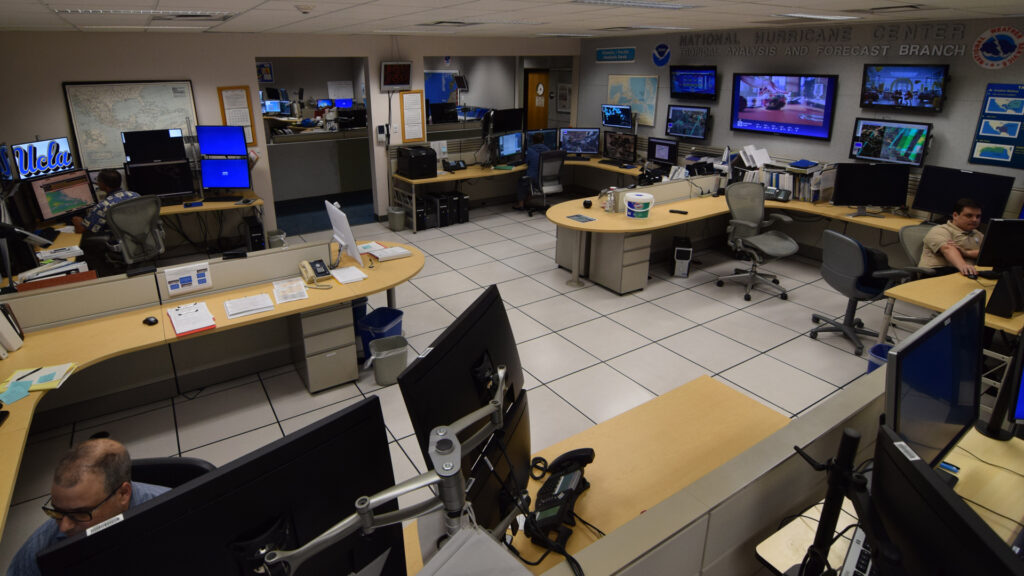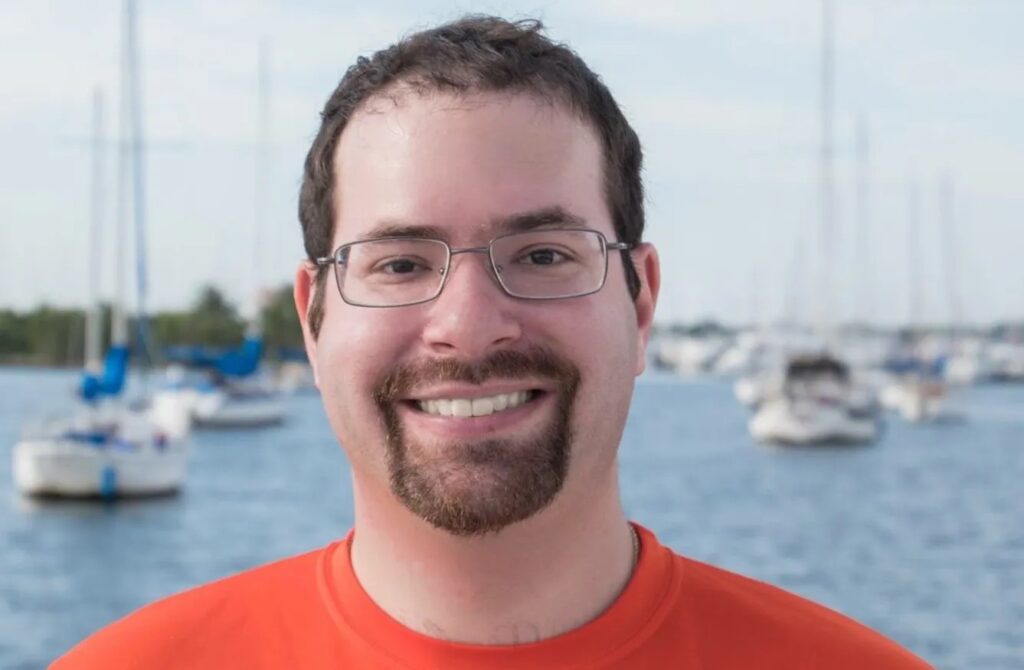By David Shiffman
The ocean connects all Americans, and everyone from California surfers to Louisiana shrimpers and everyone in between are affected by this vast and life-sustaining resource. Making sure that we can all benefit from the ocean requires wise stewardship, especially as the ocean faces threats like record sea surface temperatures that increase hurricane risk. Project 2025, a series of policy recommendations for a conservative presidential administration written by the Heritage Foundation, is anything but wise, particularly when it comes to the ocean.
Project 2025’s authors and contributors — a who’s who of fossil fuel industry insiders and climate denialists — have proposed policies that paint a terrifying future for the ocean and the millions of Americans who rely on it. Instead of recognizing the reality of climate change and taking steps to minimize its adverse impacts on American lives and businesses, Project 2025’s out-of-touch and extremist authors propose draconian cuts to federal government services that benefit people and the ocean.

Take, for example, offices like the National Oceanographic and Atmospheric Administration (NOAA), which Americans rely on every day and which oversees our fisheries, protects endangered ocean animals, and funds a great deal of academic research on ocean and coastal issues. NOAA also helps to monitor and predict potentially dangerous storms, providing vital early warnings that save lives and safeguard communities.
Project 2025 seeks the total elimination of this incredibly important agency, jeopardizing our access to information and services like the weather. Project 2025 in fact calls for privatizing the National Weather Service and handing it over to for-profit companies like AccuWeather — which even the CEO of AccuWeather says is a terrible idea. Imagine paying for a monthly subscription to know today’s forecast.
Eliminating NOAA would also mean devastation for U.S. fisheries, which employ 2.3 million Americans in an industry worth over $300 billion. This would not only jeopardize millions of jobs, but seriously harm the ocean, which depends on well-managed fisheries to thrive.
Worse yet, Project 2025 calls for revisions of the Marine Mammal Protection Act and other critical policies and initiatives that protect vulnerable ocean species and places, such as the National Marine Sanctuary system. Sanctuaries, which act as our underwater national parks, protect key habitats from destruction at the hands of harmful industries, and generate billions of dollars for the sustainable wildlife tourism industry. Presidents such as Jimmy Carter, Ronald Reagan, George W. Bush, all the way to Joe Biden have designated sanctuaries.
Project 2025 not only ignores the best available science to protect the ocean and people who depend on it — it’s out of touch with what the rest of the world is striving toward, putting us far behind. In December 2022, over 190 countries agreed to protect 30% of territorial lands and waters by 2030, known as 30×30. Project 2025 proposes eliminating 30×30 and undoing all progress made to date.
These radical ideas will make it harder to study and protect our ocean, make my family and yours less safe from climate disasters, and set us significantly behind the rest of the world. We’ll all suffer as trained credentialed and experienced experts in the civil service are replaced by unqualified extremists whose only qualification is loyalty to a politician and the extractive industries they represent.

These are only some of the many “policies” that this dangerous agenda calls for. We should all be terrified.
An administration guided by this extremist doctrine would undoubtedly be a disaster for our ocean and for coastal communities already vulnerable to hurricanes and sea level rise. Enacting Project 2025 could very well be a death sentence for America’s coral reefs, endangered whales, sustainable seafood industry, and coastal towns vulnerable to hurricanes and sea level rise. We must stop these policies now. The future of coastal resources that Americans rely on depends upon it.
Dr. David Shiffman is a marine conservation biologist and former Florida resident who holds a Ph.D. from the University of Miami Abess Center for Ecosystem Science and Policy. He currently resides in the Washington, D.C., area.
This opinion piece was originally published by the Orlando Sentinel, which is a media partner of The Invading Sea. Banner image: The Miami headquarters of the National Hurricane Center, which is part of the National Oceanographic and Atmospheric Administration. (NHC/NOAA, Public domain, via Wikimedia Commons).
If you are interested in submitting an opinion piece to The Invading Sea, email Editor Nathan Crabbe at ncrabbe@fau.edu. Sign up for The Invading Sea newsletter by visiting here.



